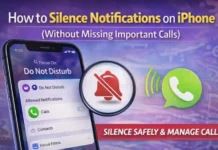There’s probably no one that would say otherwise—unless we haven’t talked to anyone who has been in the presence of nature and loathed it.
Chances are they experienced something terrible during the trip that they didn’t want to do it again. While that may be unavoidable, there are still people who attest to the healing power of nature. This can be physical, emotional, or mental wellness.
It’s a gift—except for minimal necessary fees to protect the parks—that we can all claim whenever we like. So if you haven’t been to your first hike, don’t worry. It’s not yet too late to start.
Here are eight essential things that you should keep in mind before exploring the great outdoors.
1. Pick a beginner’s trail
You can’t expect your body to automatically adjust to a terrain, primarily if you’re not used to the experience. For your first hike, make sure to pick a beginner’s trail that will let you enjoy your first try.
Observe your body when you walk on a paved surface for an extended period. If you think you have enough stamina and endurance to go through it without much effort, then you’re all set for your first hike.
But while it’s not the same for everyone, it doesn’t mean you can’t try it. Start little, and you may not know it now, but you could be conquering the world’s longest hike after years of consistency.
2. Go in groups
If you have friends who also like to go hiking, whether beginners or not, ask them to come with you. Aside from the fact that it’s fun to be around friends when you try an adventure for the first time, it’s also a matter of safety.
First-timers should go in groups because you’ll have someone to ask for help. If your friends can’t go with you, there are tour groups that you can join. Most of these groups offer hiking classes and different outing experiences that are exclusive to the members.
You know what they say, share an experience, and win a friend.
3. Learn how to read a map
You can’t always rely on your phones or other gadgets when you go hiking. It’s not that they can’t be trusted. There are points in the woods that have a weak network connection. So, if you depend on your gadgets for navigation, you might end up not reaching your target time.
You must know how to use a map to understand better where you are and the area around you.
Don’t worry about soaking the map when it rains. You can put it inside a Zip-Lock bag, and you can go on with your hike without getting lost.
You must also take note of the pit stops you can make. You need to know where the next snack shop or the restroom is located to pace yourself.
4. Work on a few stretches
Hiking is very much a workout despite looking like a recreational activity. It engages your legs, your core, and practically your whole body. So before you set out for that adventure, make sure to do some stretches and light exercises to activate the muscles.
You need to be able to build up your strength leading to the day of your hike. It will help you complete the walk without feeling drained and exhausted.
You may be a little flushed from all that walking, but at least that’s a healthy rush of blood throughout your body.
5. Bring enough water
To hydrate is divine. It’s one of the most basic survival tips you can equip yourself with when you go out into the woods.
Some may believe that bringing water bottles will only slow them down because of the weight. But the truth is, water is a crucial part of the trip. You have to bring enough water so you can rehydrate yourself often.
If you run out of it, there are water refilling stations around the trail where you can resupply your bottle.
6. Know what to wear and carry
Proper hiking clothes will set the tone for your entire trip. It will allow you to breathe and to move effortlessly. But first-timers would often ask, what’s the proper attire for a hiking trip?
The first thing that you should consider is whether the set is comfortable. But that doesn’t mean you should wear cotton. Cotton is not suited to absorb sweat and whatnot. The fabric tends to stick to your body, leaving you warm during the hot season and cold during the chillier months.
You must also be conscious of the items that you should bring. What are the functional ones, and what are those that aren’t necessary. The most important ones that should be in your pack are a rain jacket in case it rains, some trail snacks, sunscreen, and insect repellant.
7. Keep it slow and steady
No need to rush. You’re not in a race. If this is your first time and you’re not trying to beat any time, you should keep your pace slow and steady.
By doing so, you can observe your surroundings more, and you can appreciate the benefits that hiking could offer. For one, it allows you to be alone with your thoughts. You may be in a group, but that doesn’t mean you have to talk to them every step of the way.
Keeping it slow may also mean preserving your energy. It’s a smart move, especially if you haven’t experienced an activity like this before. It’s best to be conscious about your movements and be sure about the steps you’re making. Don’t run; no one’s chasing you here.
8. Plan it carefully
You can save the spontaneous hiking trip for next time. Your first hike should be planned carefully.
You don’t want it to feel rushed and forced. Take your time to breathe the fresh air around you without worrying about leaving a critical workload behind. Make sure that before you begin your trip, all your deadlines at work have been met.
Planning is also essential because it gives you that sense of security. That’s because you have planted systems and emergency routes in case something happens.
And while you’re at it, you must not forget to leave a copy of your plans and itinerary to someone in your family. It’s another safety blanket that you can hold on to in the event of an emergency.
Now that you know eight essential tips for hiking, which trail should you try first? There are plenty of choices out there. All you have to do is make the most sensible option.























